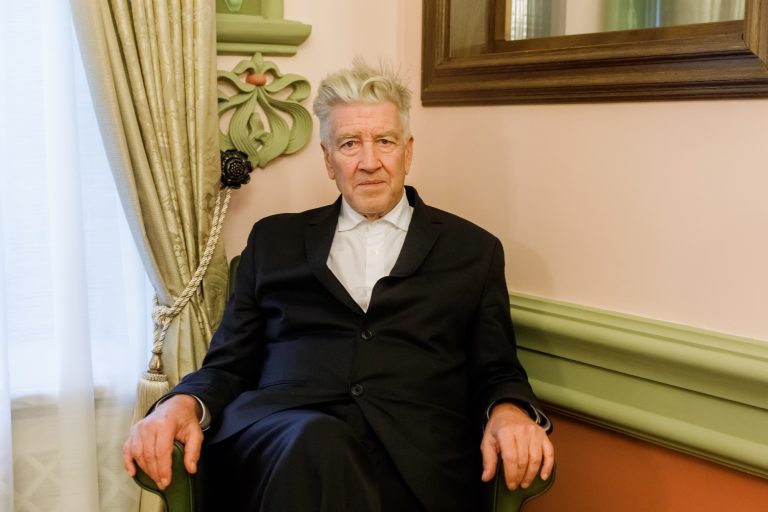Good Night, David Lynch.
The first brief glimpse I got from David Lynch came in the form of homage. So idiosyncratic was his iconography that kids cartoons of the early 90s would adapt the aura of Twin Peaks, a mysterious elemental cool surrealism, comprised of jazz music and bewildering small town eccentrics.
And then, the first real encounter came when I recorded Lost Highway, late at night, off a television channel. It cut out, right about when Fred Madison was approaching the desert cabin. I was hypnotised, spellbound! It took me weeks until I was able to finally catch another broadcast of it – and years until I fully understood its ending. Not in a didactic way – because Lynch’s films don’t have clean solutions: they aren’t puzzles or metaphors, they exist in a realm of mythology that mixes Lovecraftian cosmic horror, golden age Hollywood imagery, Americana and European art house. Lost Highway is now my favourite film of all time, a definitive reason on why I make movies, and lasting inspiration. But, before I saw it, I heard it.
For many 90s kids, film soundtracks were a veritable way of introduction to great artists. The Smashing Pumpkins were my favourite band, and here I could access them, together with Nine Inch Nails, Lou Reed, David Bowie, an up and coming band from my home country called Rammstein… the soundtrack became a personal mixtape, sprawling and shocking and sexy.
David Lynch was an artist first and foremost. He had studied painting and expanded into film, but also acted and, yes, made music! He expressed himself through his soundtracks, aided by his best friend, Angelo Badalamenti. He released multiple albums, often collaborating with a wide variety of unique musicians. His humour, his elegance and his cool style would shine on these albums, like spotlights of bright white light, illuminating single figures and clear voices.
In all his works, Lynch revisited the recent past, camouflaging it in modernist abstraction, which allowed many generations to approach the mythological qualities in art. He was not a rock star or master painter or weather news reporter or greatest filmmaker to live alone – he united these things in a motion of character building that is, likely, the most striking since Andy Warhol.
If you see a David Lynch movie, you first hear it. You hear it in the fiery alternative rock songs, the tender early rock’n’roll crooners, the glistening heavy metal, the icy synthesiser strings. The insane peaks, and dark dark lows.
For many years, Lynch had been ill. He was breathing heavily as Gordon Cole in the third season of Twin Peaks, but his health returned into focus this autumn, when he gave an interview to reveal his struggle with emphysema.
Yet, the news still comes as a sudden shock. Lynch himself had approached death in almost all his works, meditated on it. I don’t need to mention scenes – you already see them with your inner eye: the ending of The Straight Story or the last phone call of Margaret Lanterman in Twin Peaks, portrayed by the magnificent Catherine E. Coulson, in the final days of her life. The end of The Elephant Man: “Nothing will die. The stream flows, the wind blows, the cloud fleets, the heart beats. Nothing will die.”
Lynch was deeply spiritual and indulged in transcendental meditation as much as he enjoyed the blue smoke of tobacco, balancing the two forces of tension within our lives. As one by one, his close collaborators of Twin Peaks left the stage, and he himself became confined to his house, his grace persisted. Each morning, he would report the weather on YouTube. Until he stopped. Last year, he released an album of beautiful, fragile music with Chrystabell, that I appreciated a lot – maybe now is the right time to revisit it, and breathe in its nocturnal poetry.
It seems darkly poetic, like a dream, that as LA vanishes in flames, the last embers of a Hollywood whose fire has gone out long ago dissolve in ashes. The gift, of so much art, and atmosphere, and aura, that David Lynch has given us, is more than disappearing smoke. It was a privilege to walk this Earth in his time.
I am not in LA, so I read the last lines on today’s note on Lynch’s public platform, just to make sure…:
It’s a beautiful day with golden sunshine and blue skies all the way.
In eternal gratitude, and with love.
David Lynch
1946-2025

